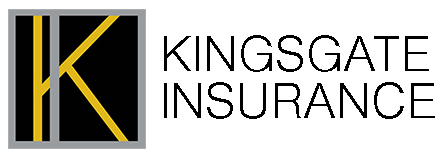Potholes
Whether it’s group benefits or individual policies there are potholes that you will run into and things you just do not understand. It is our goal here at Kingsgate Insurance to help educate you and assist you in navigating those potholes and uncertainties when it comes to insurance.
Network (Understanding it/providers)
A major pothole we run into when speaking with clients is just basic understanding of your network and knowing what is in network and not in network. If a doctor or facility has no contract with your health plan, they’re considered out-of-network and can charge you full price. It’s usually much higher than the in-network discounted rate.
The main difference between the two of them are cost and whether your plan helps you pay for care you get from out-of-network providers.
Please understand and note that when you get your plan you typically have access to a specific provider network that can normally be accessed online. It’s important that you either call the place you are looking to get care at and/or take a look at the specific provider network so you aren’t surprised!
Deductibles, Co-Insurance and Out-of-Pocket Maximum (OOPM)
Deductible
Your deductible is the amount you must pay before your health insurance will start paying for certain services (i.e. surgery, inpatient stays, outpatient services, etc.) Your deductible is a portion of your out-of-pocket maximum, those amounts grow together.
Co-insurance
This is the percentage of your medical bill you will share with your insurance company. Coinsurance does not come into play, until your deductible is met. Say you have a $2000 deductible and 20% coinsurance. Once you meet your deductible, you will pay 20% of all medical bills until you reach your out of pocket maximum.
Out-of-Pocket Maximum (OOPM)
Health plans have a limit on how much you can spend on health insurance costs in a 12 month period (typically calendar year). Your deductible, copayments and coinsurance are all considered “out of pocket costs” and will count towards your OOPM. Premium payments are NOT included in the OOPM
Explanation of Benefits (EOB)
After you visit your provider, you will receive an Explanation of Benefits (EOB). The EOB lets you know how a claim (i.e. Dr Visit, Surgery, etc.) will be covered and charged to you. It is important to understand that an EOB is not a bill, rather it is an overview of the total charges for your visit and how much you and your health plan will have to pay.
It is recommended that you check the services you received and the date you received them. All EOBs will have the dates of service, total amount charged, Health Plan responsibility and the amount that you, the subscriber are responsible for.
Be sure to always save your Explanation of Benefits until you get the final bill from your Healthcare provider to compare.
Beneficiaries
A Life insurance beneficiary is the person or entity that will receive the death benefit when you pass away. The death benefit is the amount of life insurance you purchased (i.e., $100,000 life insurance policy has a death benefit of $100,000). It is important to update beneficiaries throughout the length of your policy (i.e., marriage, birth, death of beneficiary, etc.) If your beneficiaries are not stated clearly with contact and personal information, the insurance companies can dispute the death benefit, making it difficult for them to receive the death benefit.
Your life insurance policy should have both “primary” and “contingent” beneficiaries. Contingent beneficiaries are the person or entity that will receive the death benefit if the primary beneficiary has passed away. If no beneficiaries can be found, the death benefit will your estate, taxed and then used to pay any debt you might have had. If the death benefit goes to your estate, probate proceedings could delay distributing the money, and the cost of probate could diminish the amount available.
Pothole Scenario
Click HERE to read an example Pothole scenario.






